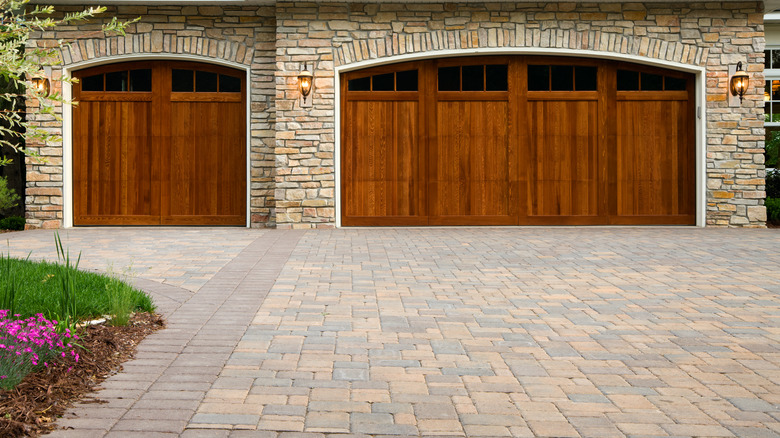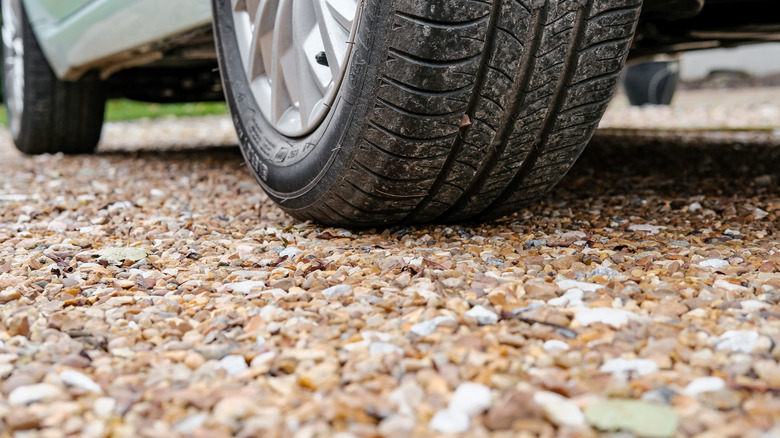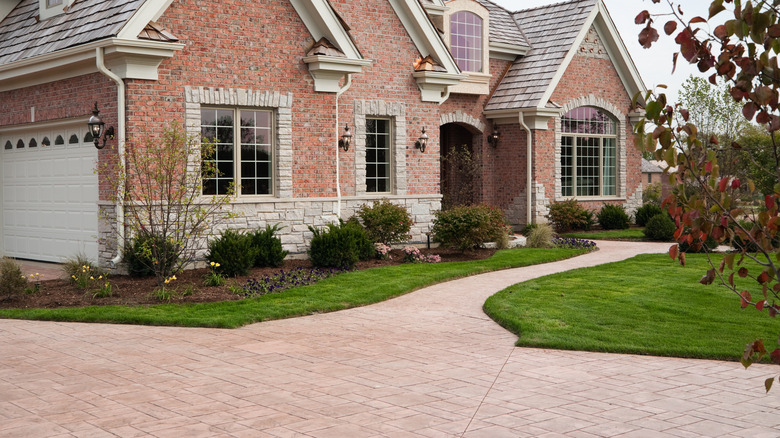How To Know If A Stone Driveway Is Right For Your Home
As much as we love renovating the inside of our homes, the outdoors is where first impressions are made. A large portion of our front yard is comprised of our driveway, which is usually the area that gets the most wear and tear. Stone driveways are eye-catching and offer an array of styles, price points, and care requirements. Redoing a driveway can be an enormous project, but one that can increase property value by more than $10,000.
With many types of stone available for driveways, it's essential to reflect on the weather in your area, how you use the driveway, and if you plan to sell the house. For example, certain types of stone won't always do well if you live in an area that gets heavy snowfall each winter; some will be better for biking and rollerblading, while some will offer superior price points and have more straightforward maintenance requirements. Still, if you are looking for a material that provides longevity and beauty, investing in a stone driveway might be a wise choice.
Is a stone driveway right for your home?
As you consider whether a stone driveway is suitable for your home, you must first look at the different types of stone driveways to choose from. You'll find that gravel and pebble driveways are a more affordable option, and natural stone pavers or cobblestone will be more expensive. The difference between gravel and pebbles is that pebbles tend to be smaller in size, rounder, and smoother in appearance. On the other hand, gravel is larger and rougher – usually crushed limestone – and produces more dust. Loose stone options are more cost-friendly and can last over 100 years if maintained correctly. However, extreme weather and natural wear will require you to smooth and regrade the surface, remove weeds, and possibly put in borders to keep things tidy.
Stone pavers and cobblestones are more expensive but don't require much maintenance over time. These options will be pleasing to the eye and can last for 50 years or longer but may not provide the smoothest, most even surface. Also, the upfront cost may be more, but you may see a return on your investment due to increased property value if you plan to sell your home. This is because natural stone pavers and cobblestone driveways would be considered a premium touch in terms of aesthetics and durability.
Other driveway alternatives
If you're redoing a driveway to help sell a home, stone may not be the best choice. While these driveways will likely outlast other materials, gravel or pebble driveways might be unappealing to buyers, and paved stone or cobblestone can be prohibitively expensive. Luckily, many other driveway alternatives offer longevity and curb appeal and are easier on the wallet. Asphalt is one of the cheapest pavements you can invest in, costing $2 to $5 per square foot, and is known to last up to 20 years. Asphalt has its drawbacks, however; it should be resealed every few years and can be damaged by extreme heat. Concrete is slightly more expensive at approximately $5 to $6 per square foot. You can expect it to last between 25 to 50 years.
Brick driveways are another option, giving a similar look to cobblestone but at a lower price. Laying bricks will average $5 to $10 per square foot. That said, bricks have higher maintenance requirements and must be resealed and pressure-washed twice yearly for optimal longevity.
Stone offers the longest lifespan and flexible options in terms of cost and aesthetics. Concrete and asphalt are more affordable but require more maintenance and won't last as long. It's safe to say that stone is perfect if you're investing in a permanent home, but other options may be superior if you hope to sell.


